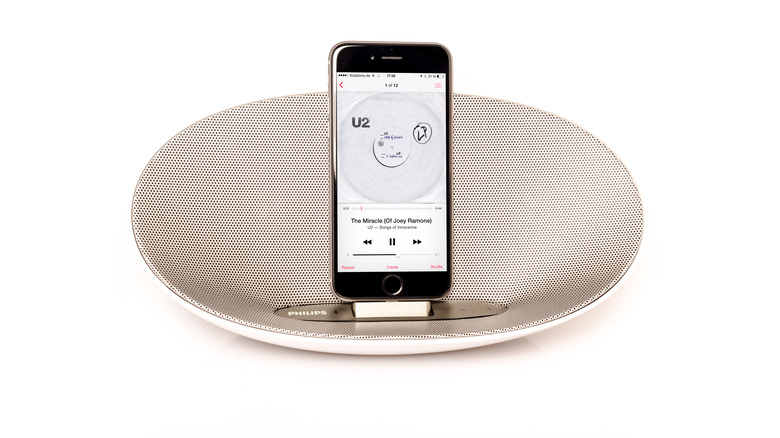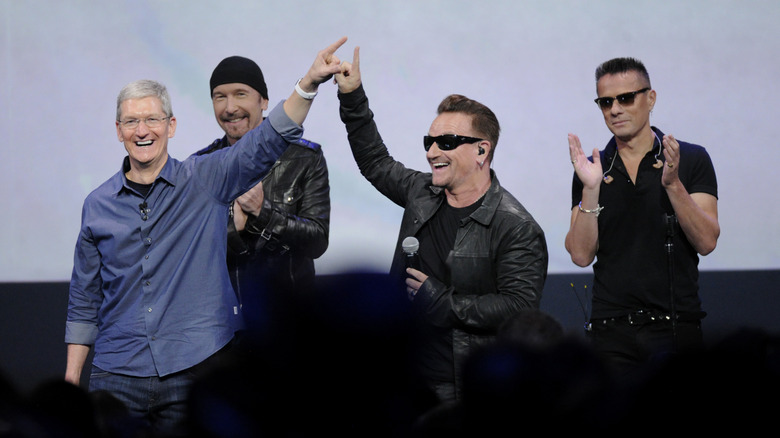U2 And Apple's Strange Relationship Explained
Anybody remember when Apple basically forced iTunes users to download a U2 album? That was weird, right? Free download, everybody with iTunes – here's some U2, it's in your library now, deal with it. Why exactly did that happen?
The answer to that question is more complicated than it might seem. The compulsory download was just the most flagrant instance of a gamechanging cross-market partnership between Apple and U2, one that simultaneously sabotaged any renegade mystique in the world of rock and roll and opened a path for artists of all kinds to collaborate with corporations to mutual profit.
In a sense, the Apple-U2 partnership predicted an important element in the evolution of art and pop culture. In a rudimentary way, that collaboration established an art-business-technology nexus that predicted several changes that would reshape creative culture in the 21st century. It wasn't quite the influencer/sponsor partnership, but it had enough elements in common to significantly inform its development.
Star power and soaring profits
Let's start with the simplest reason U2 partnered with Apple: each liked the other's product. Bono in particular has waxed lyrical about Apple as a changemaker in the music space. Business Insider quotes him as saying:
"The iPod is probably the greatest pop object since the electric guitar. We—as a band—feel strongly about the iPod. We—as a band—talked about the idea for an iPod years ago."
Only reasonable, then, that a band of dedicated Apple enthusiasts should hook up with the House of Cupertino for mutual benefit. What started as a simple endorsement became a professional relationship that lasted years: U2 released first a single, "Vertigo," then the entire "Songs of Innocence" album through Apple's iTunes music store.
In some ways, the Apple-U2 partnership predicted the cozy relationship between content creators and sponsors today. U2's involvement with Apple went beyond a single product endorsement or album release. Each became a fundamental part of the other's brand, effectively doing PR for one another after recognizing they sold compatible products to similar customers (via Business Insider).
Alas, another way Apple and U2 predicted the influencer/sponsor relationship is that they didn't last forever. As Business Insider reports, the relationship grew less valuable for both parties over the years. U2 went on to endorse the Palm smartphone and accept tour sponsorship from RIM, the manufacturer of the BlackBerry.

